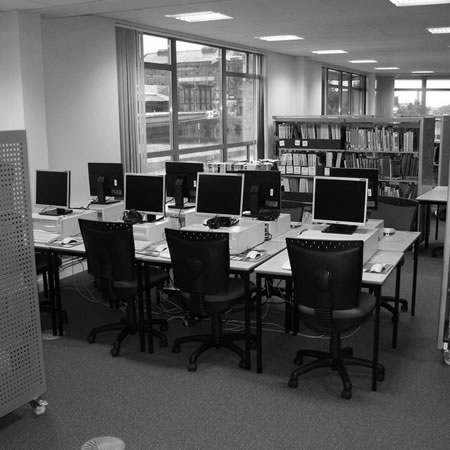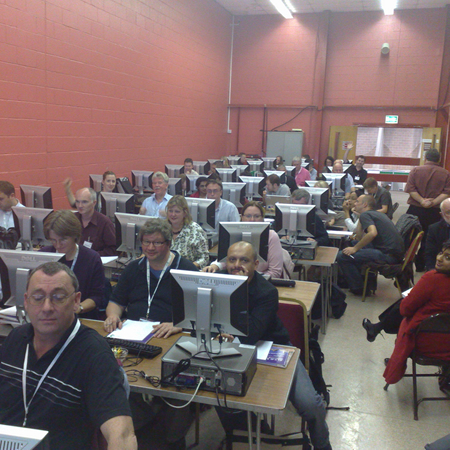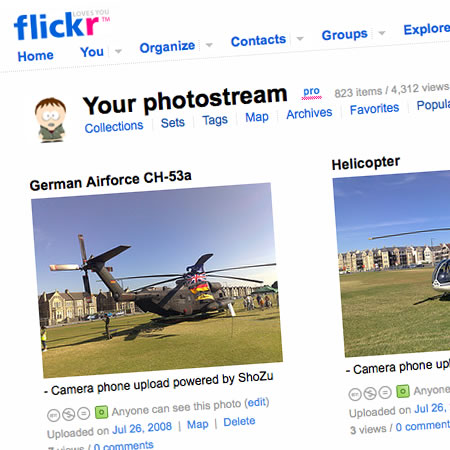One of the reasons I go to ALT-C is the workshops! Now don’t get me wrong I enjoy the short papers and some of the longer ones even interest me. The keynotes can be inspiring, whilst the demos can inform, but I seem to get more out of the workshops than the other parts. Though it has to be said that I did also enjoy the debate and discussion at the F-ALT events.
Last year at ALT-C 2007 one of the workshops I enjoyed was the Web 2.0 Slam, from which Hood 2.0 was born.
This year at ALT-C 2008 Frances, Helen, Josie and Christina presented us with the Digital Divide Slam.

Creatively create something which explores the digital divide.
So myself, Steve Wheeler and Joss Winn got together and thought about what to do.
We decided to do a talking heads video, influenced by Monty Python, Smith and Jones and Pete and Dud.
We had 30 minutes to develop, write, create, film, edit, export and upload this video. Shot in one take it’s not perfect, but it was never suppose to be perfect.
We enjoyed making it, and the other workshops delegates seemed to enjoy it too – they voted us the winners in the workshop vote.
I was surprised to find out later that a lot of people thought we had created it the day before, or even before ALT-C. No we actually created it in 30 minutes. Thanks to a wonderful camera a Panasonic HD Camera and iMovie ’08 on my MacBook Pro
it was possible to shoot, edit and export a short film like this. Obviously the technology can’t do anything about the acting.
It wasn’t as easy I make out. I didn’t have a SD card reader, and the Panasonic HD Camera I used records onto SD cards. Helen’s laptop did, so I had to copy the files from the SD Card onto my 1GB USB stick which I did remember. I then managed to import the HD video files from the USB stick into the MacBook Pro. I then realised I had left my DVI-VGA adapter in my accommodation and there wasn’t one to be found. Hmmm, so I had to export the movie from iMovie as a Quicktime movie, I then used VisualHub to export the movie to a Windows Media format, copy back to the USB stick and show the audience on Helen’s laptop. I couldn’t use Windows Movie Maker (as you may have thought) on Helen’s laptop as it doesn’t support the HD footage from the HD camera.
In the end it worked.
More slams can be found here.
Vote for this video here by Monday in the online voting.





